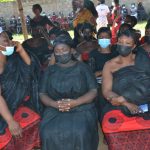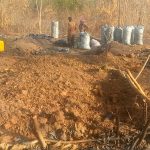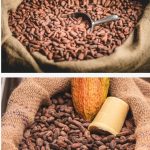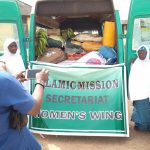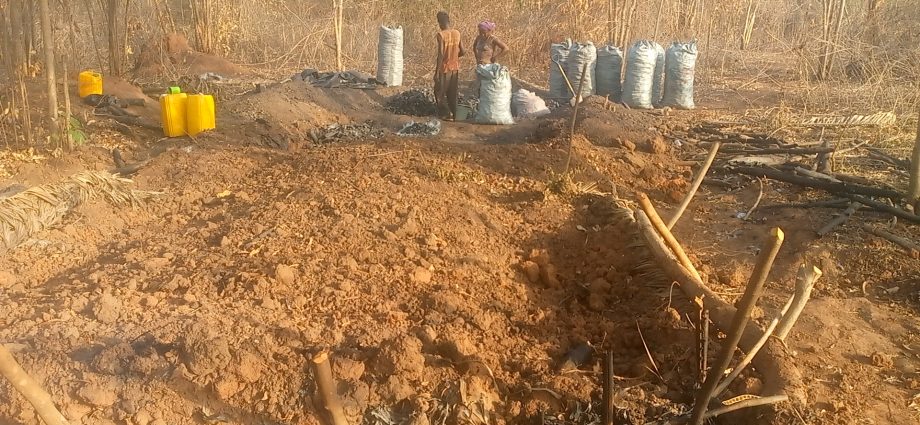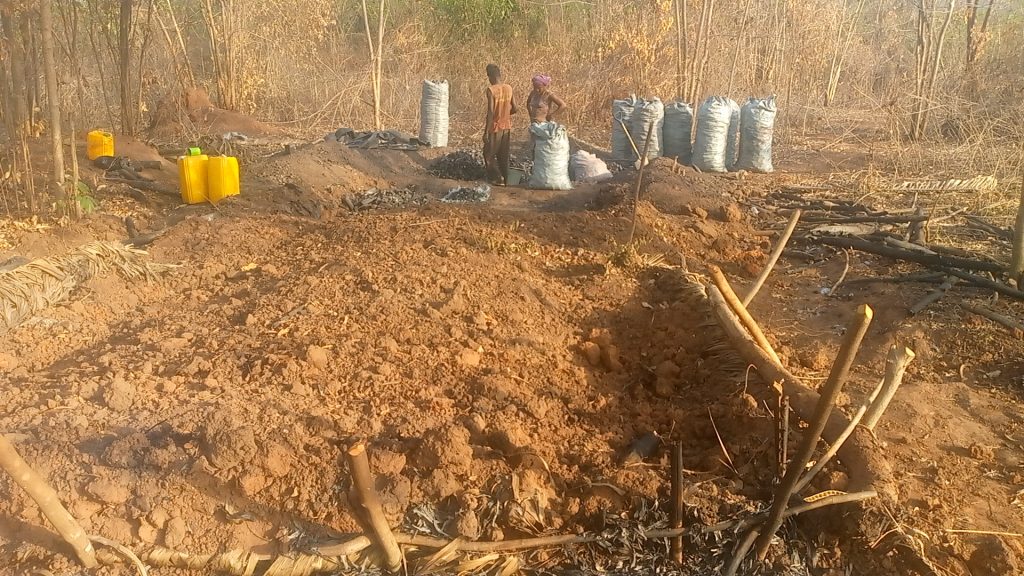
Asesewa (E/R), April 23, 2024
People in rural communities of the Asesewa enclave in the Manya Krobo District of the Eastern Region are predominantly traders and farmers in cassava and maize cultivation as main employment source.
They have commercialized indigenous charcoal burning (production) as an alternative livelihoods support means.
Their farmlands full of acaia trees could not be used for food crops cultivation straight away, therefore, after clearing any portion of the mini-forest for the first time, they have to allow it for not less than three years before foodstuffs can be grown on that piece of land.
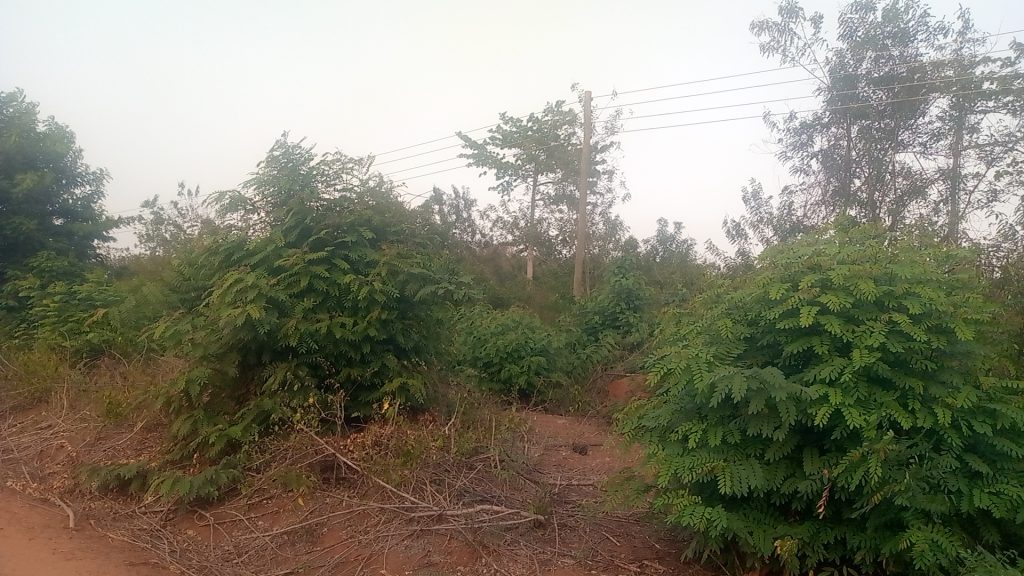
This, they saw was a worrisome situation affecting their living, thereby pushed into using the felled acacia trees for charcoal making within the three-years waiting period.
The farmers described their initiated alternative business and the new hope as “lucrative for survival” and a full-time business for some of them for centuries.
Mr. Joseph Narh, Chairman of the charcoal producers Association at Bisa told this reporter during interaction on (the impact of charcoal business on climate change).
Population
According to Mr. Narh, there are over one million people in the rural areas of the Asesewa District engaged in the business aside the food crop farming.
They are located in scattered communities including Adife, Kabo, Adife-Sokwenya, Bisa, Dawa, Djakane-Dawa, Kono-Dawa and Ogome-Dawa, he said.
Climate challenge
As Woodlands and Forests are central concern and labelled as key climate-sensitive sector, the charcoal business in general remains a threat to the climate impact.
Most especially as it relates to trees destruction and environmental degradation.
With the continues engagement in the business by many rural communities in the country, the negative climate impacts keep escalating, resulting in discomfort weather conditions and many bad environmental experiences.
As part of the National Adaptation Planning policy and commitment to the International Climate Action Agenda, President Nana Addo Dankwa Akufo-Addo declared June every year for tree planting to Green Ghana mitigate the climate change and ecosystem sustainability.
From search, over 42 million trees had been planted nationwide since the beginning of the Green Ghana project in 2021.
Restoration of lost forest through charcoal burning
Interestingly, the charcoal producers in the Asesewa area showed the way to mitigate the climate change and its negative impact.
They have initiated a strict system of reforestation they called “fell-one, replace-10 trees” to re-store woodlands in the District as their shared responsibility to contribute to the successful implementation of the Climate Action Agenda.
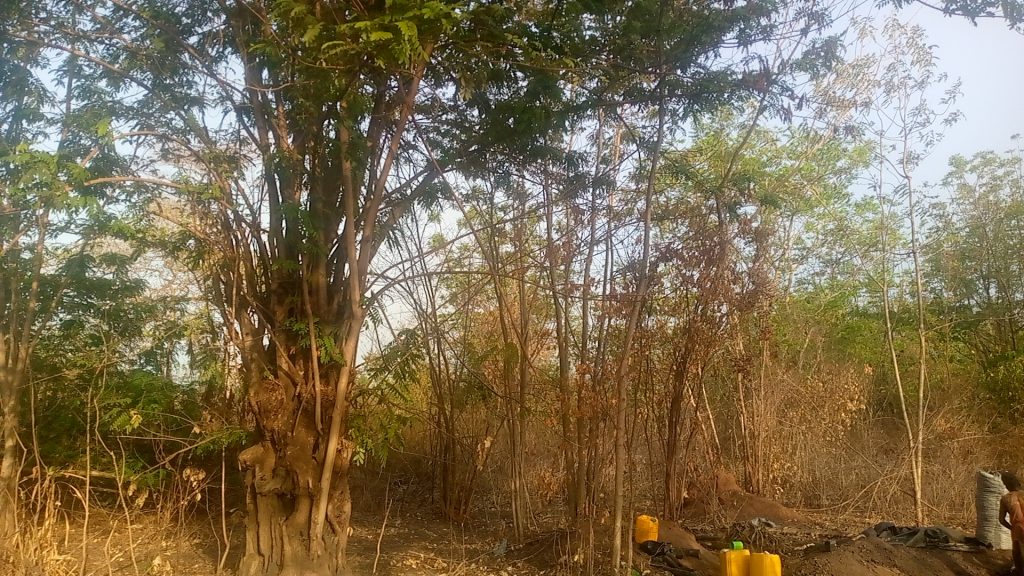
Mr. Narh explained to this writer in an interview that their system of operations is under strictly regulation, “you fel one tree and plant 10 as replacement to return that portion of the land into a former forest land” and thanked President Nana Akufo-Addo for introducing the tree planting project.
Though charcoal burning is their gold mine or cocoa farm, the chairman of the association stated they are poised and obliged to prevent the negative climate impacts and make the future well living for the succeeding generations.
In that regard, he said their active approach was to ensure conservation and restoration of their wooded farmlands to prevent and reverse degradation of the forest.
Finances
The low income farmers in one accord formed a Credit Union and named it “Onyemi Kormor, Okormor”, meaning your neighbors problem is your problem and operating it for decades.
It was a self-help initiative to give financial assistance to themselves in support of their farming businesses.
It was opened for beneficiaries not only in the charcoal production but, the general farmers in the catchment areas of Bisa and Adife communities.
Mr. Narh, also executive member of a Co-operative Credit Union reiterated their tree replacement intentions was to protect forest degradation for the natural habitats, prevent desertification and sustain the healthy ecosystems and accelerate natural regeneration.
Addey, on of the farmers further explained after felling the tree, “the stumps growing back can appear 10 or more at a time, therefore we constantly check and properly maintained it to become mature trees in the next six months to have our woodland back”.
“It’s our Cocoa farm, therefore we ensure maintenance of the stumps to have the trees back to restore the green environment, repair the ecosystem and prevent the menace of climate change for our own health and socioeconomic benefit”.
Addey said they mostly experiences wind dispersal of the acacia seeds which is capable of covering more than 30 acres-land in less than three years aside the tree stumps.
It is therefore their no excuse duty to keep proper eye on maintenaning the mini-forest to avoid disappearing that affects rainfall patterns in the area, they stated.
Employment
Mrs Gifty Doe Tetteh, a dealer in quantities of bags told this writer that the charcoal industry has fetch direct jobs to more than close to 1 million middle and old age groups scattered across the Eastern Region including single mothers.
Mrs Tetteh who have been in the charcoal business throughout her lifetime said the old age single mothers do the business on retail basis at their homes while some others do quick buy and sell on market days from Monday to Friday for their survival.
She outlined that mini-kia drivers, tricycle riders and loading boys too had something to feed themselves and their families from the charcoal industry, adding make good sales mostly in the raining season.
One of the male charcoal retailers, Mr. John Tetteh, popularly known on the Nkurakan market as “Obolo Hajualor”, the husband to Mrs. Gifty Doe Tetteh urged persons in the charcoal production business in other parts of the country to emulate the approach by people of the Asesewa area an other good interventions so that the business would not bring repercussion to the next generations.
Saying, individuals depending on this charcoal business alone in the region would have been adding to the chunk unemployment population of this country and the likelihood that “majority of them may have engaged in social vices that would not help the society”.
Mr. Tetteh highlighted people in this buy-and-sell charcoal business are from places including Mamfe, Akropong, Adukrom, Koforidua, Kukruantum, Oyoko, Asokore, Asaman, Aboabo, Agogo, Apesua and others in the Eastern Region.
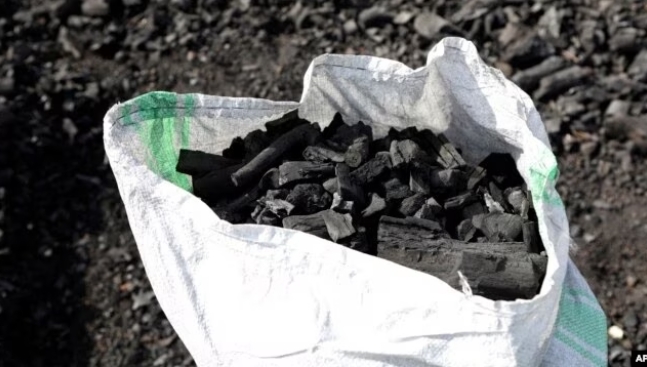
“They are all not only from Manya Krobo, Yilo Krobo, Okere and New Juaben Municipalities and Districts”, he emphasized.
The business is helping us to take care of our wives and children and we make good sales mostly in the wet season, Mr. Tetteh added.
Princes
The bag of charcoal from people doing direct buy-and-sell goes for GH¢140 and 150 at the Nkurakan market.
Others who needs small quantities for their meals gets them from GH¢5 and above on the market while others gets GH¢3 from the retailers at home.
At the bush (farm gates) the bag goes for GH¢80, 90 or 100 depending on the location and distance.
Challenges
Mr. Tetteh appealed to the Municipal Assembly, the Central government and development partners to help them get charcoal shelter at the major markets to protect them from the scorching Sun.
Saying, they are compelled to hire an umbrella at the cost of GH¢4 every market day to save them a little from the Sun.
Thefourlens.com
thefourlensofficial@gmail.com
Writer’s email: ttchrietoph1@gmail.com


